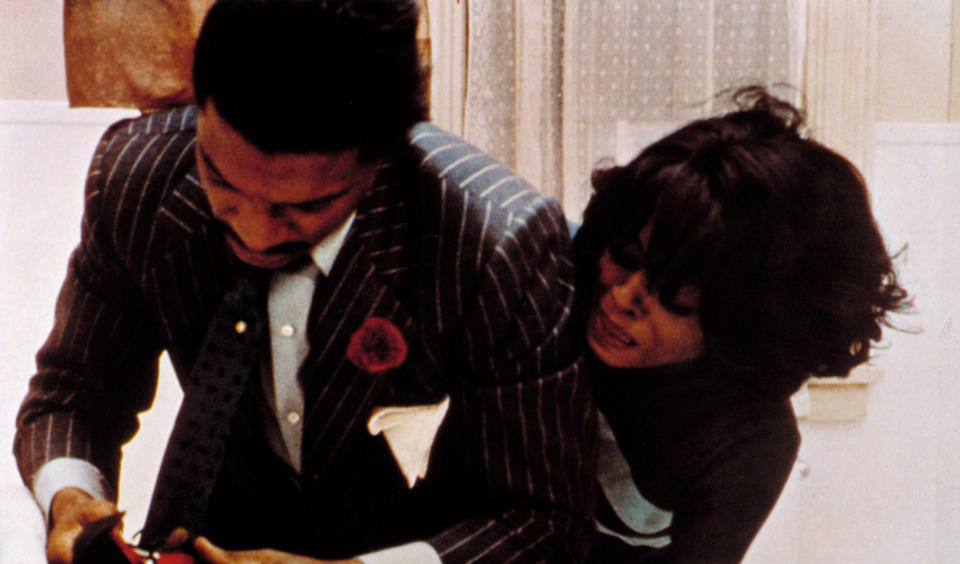Jay Weston Dies: ‘Lady Sings The Blues’ Producer Who Gave Al Pacino Broadway Break Was 93
- Oops!Something went wrong.Please try again later.
- Oops!Something went wrong.Please try again later.
- Oops!Something went wrong.Please try again later.

Jay Weston, who was working as a publicist when a chance meeting with Billie Holiday at the 1958 Newport Jazz Festival would lead to the producing of her 1972 biopic Lady Sings the Blues, died February 28 of natural causes at the Motion Picture Home in Woodland Hills, CA. He was 93.
His death was announced by spokesperson Jeff Sanderson on behalf of the Weston family.
More from Deadline
Hollywood & Media Deaths In 2023: Photo Gallery & Obituaries
Ricou Browning Dies: 'Creature From The Black Lagoon's Gill-man Was 93
Brett Radin Dies: Talent Manager With Knitting Factory Management Was 53
Related Story
Hollywood & Media Deaths In 2023: Photo Gallery & Obituaries
Related Story
Ricou Browning Dies: 'Creature From The Black Lagoon's Gill-man Was 93
Related Story
Brett Radin Dies: Talent Manager With Knitting Factory Management Was 53
A prominent restaurant critic later in life, Weston’s show business career in the 1960s, ’70s and ’80s was marked by such high points as producing Billy Wilder’s last film (Buddy, Buddy starring Walter
Matthau and Jack Lemmon), Chu Chu and the Philly Flash with Carol Burnett and Alan Arkin, W.C. Fields and Me with Rod Steiger and For Love of Ivy starring Sidney Poitier.
In his sole excursion to Broadway, Weston produced the storied 1968 production of Don Petersen’s play Does a Tiger Wear a Necktie?, launching the career of a young Al Pacino.
Born John Weinstein on March 9, 1929, in Brooklyn, Weston and his younger brother Stan lost their mother at a young age and were raised by their opera-enthusiast father and jazz pianist stepmother. (Stanley Weston later would become an inventor who created the iconic G.I. Joe action figure.)
The familial love of music would hold Weston in good stead: When he met the great jazz singer Holiday at the Newport fest, he became intrigued by her newly published memoir. In a 2011 interview, Weston recalled the meeting: “She said to me, ‘Some guy just wrote a biography of me called Lady Sings the Blues. And most of it’s true, but a lot of it isn’t.’ I read the book and I said to her agent, ‘I want to make a movie out of it.’ He said, ‘Give me $5,000, and I’ll think about it.’ So I gave him $5,000, and it took 13 years and many $5,000 payments to keep the rights because everybody wanted it.”

Weston also recalled that how the film’s Oscar-nominated star Diana Ross became involved in the project that would become her feature film debut. “I wanted Diana Ross to do it because she said in a Look magazine interview that she had wanted to play Billie Holiday,” Weston said. “I finally went to see her, and her manager said, ‘No way, she won’t play a Black junkie.’ After two or three turn-downs, I went back with the director, Sidney Furie, and she ended up in the movie. Then I got Billy Dee Williams. I had seen him years before Off Broadway, and I said, ‘If I ever make this movie, I’d like you to play her husband.'”
Weston had attended New York University as a pre-med student before switching to an arts curriculum. After earning a B.A., he began his career in publicity before being drafted and sent to Korea in 1952. There he started a newspaper, The Hialean, which won the Army Commendation Medal as the best newspaper in Korea.
After his discharge, he returned to New York and started a publicity firm representing many young stars including Paul Anka. He became public relations counsel for Cinerama Inc., where he worked for a decade, and then went to work as head of ABC’s feature film division, Palomar Pictures, in 1967. His first major project there was 1969’s They Shoot Horses, Don’t They? starring Jane Fonda.
Also around that time — in 1968 — he produced the play Does a Tiger Wear a Necktie?, a notorious Broadway flop that nonetheless won Pacino a Tony Award, launching the young actor’s career. That same year, Weston would co-produce the film For the Love of Ivy, starring Poitier and Abby Lincoln.
Weston moved to Los Angeles in 1971 to pursue film production more actively. The following year he produced Lady Sings the Blues, along with Berry Gordy, Brad Dexter and James L. White. The film, like the book that inspired it, played fast and loose with Holiday’s true life story, but it quickly put Ross, the former lead singer of The Supremes, into the front ranks of Hollywood leading ladies.
Weston’s subsequent film credits could include W.C. Fields and Me (1976); Night of the Juggler (1980); Underground Aces, Chu Chu and the Philly Flash and Buddy Buddy (all 1981); and 1990’s beach volleyball film Side Out starring C. Thomas Howell and Peter Horton.
In 1987, Weston exec-produced the Harry Hamlin TV movie Laguna Heat and, in 1999, the TV movie Invisible Child starring Rita Wilson.
In 1981, Weston discovered a Los Angeles Chinese restaurant that he thought was so good he wrote to 100 friends to recommend it. As people began seeking his advice for places to eat, he soon founded a monthly newsletter reviewing restaurants that continued publishing until 2022.
Weston is survived by his ex-wife, Annabelle Weston Shulman; his daughter, Teresa Kraegel (and husband Bill); grandchildren Connor and Caroline; sister Ann Sowers and nephews Greg and Eric Gantwarg.
Best of Deadline
Sign up for Deadline's Newsletter. For the latest news, follow us on Facebook, Twitter, and Instagram.

